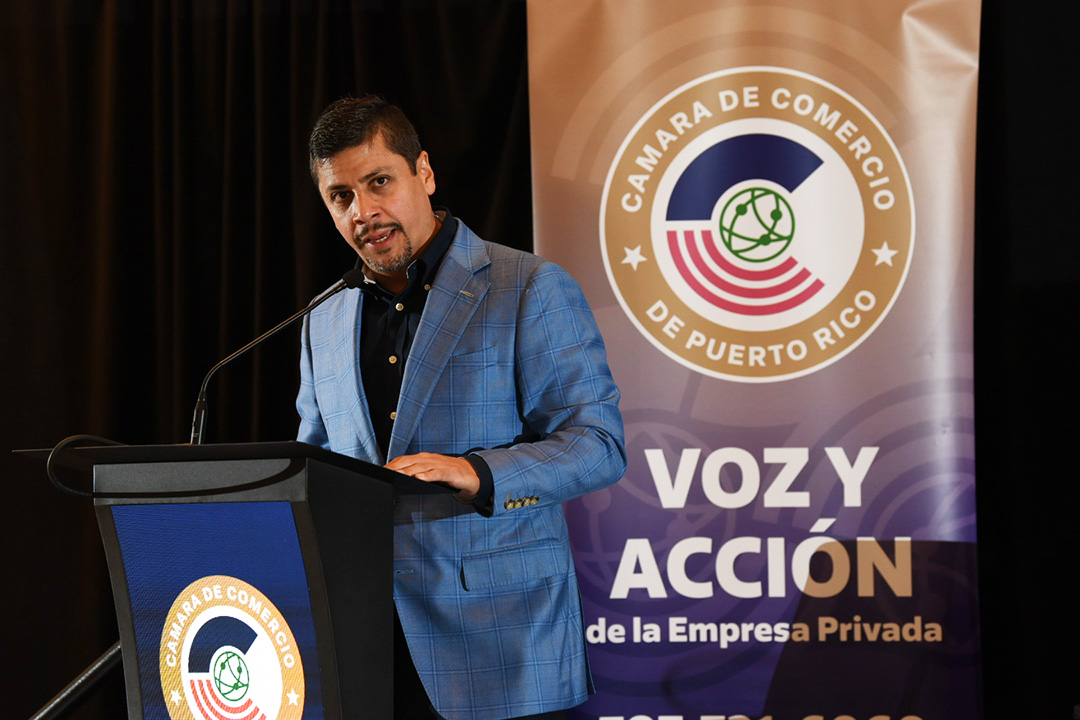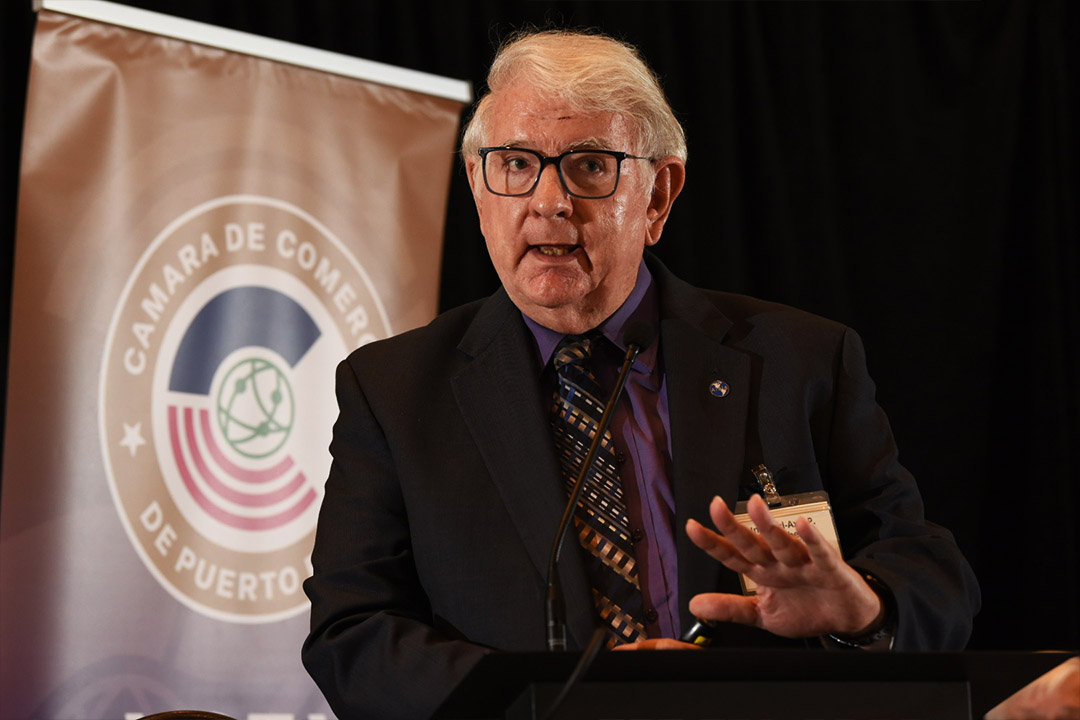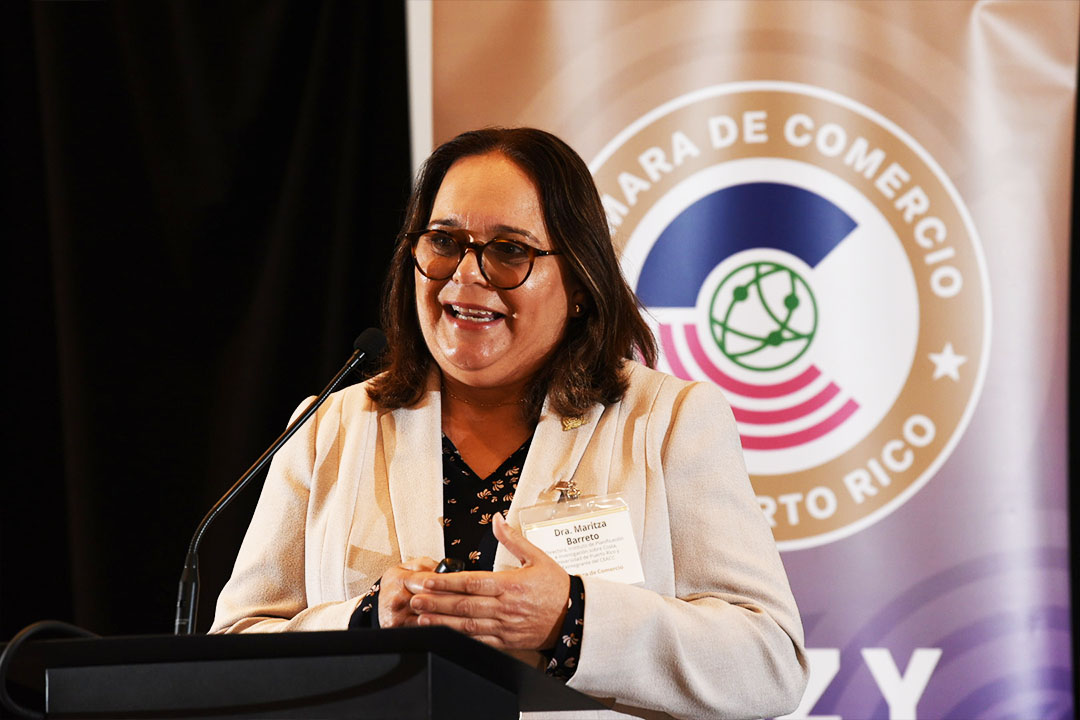Puerto Rico Chamber of Commerce Hosts Climate Change Summit: Impacts and Solutions for Puerto Rico
San Juan, Puerto Rico – March 14, 2025 – The Climate Change Summit and Its Impact on Puerto Rico, organized by the Puerto Rico Chamber of Commerce, brought together leaders from the public, private, and academic sectors to discuss the challenges the island faces due to climate change. This event served as a key platform for reflection, action, and collaboration among experts and policymakers.
“Summit 2025 Forum: Alert! Condominium and Building Collapse and Climate Change is a crucial event for the viability of economic development and the construction sector in Puerto Rico. It addresses structural and regulatory challenges that could impact investment and sustainable growth. From this perspective, its significance lies in the following aspects: Security and Confidence in Real Estate Investment, Innovation in Construction and Climate Change Adaptation, Regulations and Certifications for Sustainable Development, Growth Opportunities for Professionals and Businesses in the Sector, and Impact on Insurance and Project Financing,” stated Lic. Luis E. Pizarro, President of the Puerto Rico Chamber of Commerce.
Ing. Carl-Axel P. Soderberg, a member of the Expert and Advisory Committee on Climate Change, opened the session with a presentation titled: “Inaction on Climate Change: Impact on Puerto Rico’s Economy.” He emphasized that, for the first time in Puerto Rico, economists have publicly presented data on how the island’s economy would be affected if climate change is ignored.
“Economists have warned that relying on a strategy of repairing damages or replacing housing and infrastructure as climate change takes its toll will lead to catastrophe. The required investment would be so massive that Puerto Rico’s economy will not be able to sustain it. In a conservative scenario, assuming the planet’s average temperature rises by 2°C and that all countries achieve net-zero greenhouse gas emissions, Puerto Rico’s GDP is projected to decrease to $379 billion by 2050,” he stated, while presenting a sector-by-sector breakdown of expected damages by that year:
- Manufacturing sector: $235 billion in losses
- Housing sector: $161 billion in losses
- Services sector: $100 billion in losses
- Trade sector: $37 billion in losses
- Agricultural sector: $13.35 billion in losses (land and equipment)
- Tourism sector: $7.82 billion in losses
- Payroll and infrastructure: $1.81 billion in annual losses
- Total infrastructure damages: $1.446 trillion
Meanwhile, Dr. Maritza Barreto, Director of the UPR Institute for Coastal Planning and Research, presented on “The Impact of Rising Sea Levels on Puerto Rico’s Infrastructure.”
“Regarding coastal erosion, we are currently conducting extensive research at the university. We have already documented the disappearance of beaches in municipalities such as Dorado, Carolina, Isabela, and Aguadilla, especially in areas with structures and rocks. It is crucial for the people of Puerto Rico to be aware of this reality. Another critical concern is our roads: 105 road segments in Puerto Rico are already at risk of coastal erosion and flooding as sea levels continue to rise,” she explained.
Dr. Barreto supported her arguments with statistics emphasizing the impact of rising sea levels:
- Expansion of infrastructure footprint (1997 vs. 2017)
- Approximately 22% of the population (as of 2020) lives within a coastal strip of no more than 10 meters above sea level (LECZ); 13% of the population resides in the coastal zone.
- About 32% of Puerto Rico’s critical infrastructure is located within the 10-meter elevation coastal zone (LECZ).
- Vulnerable populations are at high risk.
The conference continued with discussions on key topics, including:
- Climate Reality Spokespersons
- Clear Manifestations of Climate Change in Puerto Rico
- Case Studies on the Reality of Climate Change Impact on Puerto Rico’s Buildings
- Mandatory Inspections, Permits, and Building Codes
- Health Risks Associated with Climate Change
- Structural Monitoring Simulators for Earthquake-Prone Condominiums and Buildings
- Slow-motion Impact of Rising Sea Levels
- The Built Environment and Its Vulnerability to Climate Change
- Why Is Nuclear Energy Absent from Puerto Rico’s Energy Outlook?
“A modern, safe, and resilient construction sector is essential for Puerto Rico’s economic growth. This forum provided a crucial space to discuss strategies that not only protect existing infrastructure but also enable sustainable and competitive development for the future,” concluded Lic. Pizarro.
Media Contact:
Karen Garnik, APR – 787-502-2424
karen@globalvisioncomms.com
Isadora Hernández – 787-310-3807
isadora@globalvisioncomms.com





